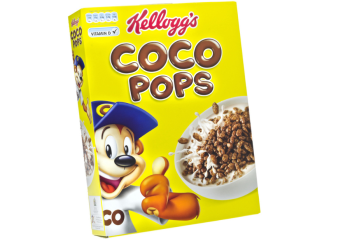
Kellanova has raised its 2024 organic net sales guidance on the back of better-than- expected second-quarter results.
The company, which previously made up US cereal giant Kellogg’s global snacking business, was spun off last year and now has a portfolio made up of snacks, frozen food and cereal (outside of North America) with brands including Pringles, Eggo, Pop-Tarts and Nutri-Grain.

Discover B2B Marketing That Performs
Combine business intelligence and editorial excellence to reach engaged professionals across 36 leading media platforms.
In the three months ended 29 June, Kellanova reported net sales of $3.19bn, which although down 4.7% year-on-year beat analysts’ expectations of $3.15bn, with key brand sales holding up despite several rounds of price increases.
It is now forecasting organic net sales will grow 3.5% or more for the year, compared to its prior outlook of about 3% or higher.
The forecast range for adjusted earnings per share has also been raised, to $3.65 to $3.75, from a previous range of $3.55 to $3.65.
CEO Steve Callahane said: “Our top-line growth featured a return to volume growth in two of our regions and improvements in other markets, led by our biggest brand Pringles.”

US Tariffs are shifting - will you react or anticipate?
Don’t let policy changes catch you off guard. Stay proactive with real-time data and expert analysis.
By GlobalDataHe said growth was supported by “fully restored” commercial activity, including a double-digit increase in brand-building investment.
Kellanova said sales were down year-on-year as a result of “significantly adverse” foreign-currency translation and last year’s Russia divesture. It pointed out that on an organic basis, excluding the impact of currencies and divestures, net sales increased by 4%.
Reported operating profit of $493m for the quarter was up 18% year-on-year, partly as a result of “continued improvement in gross profit margin”.
Kellanova’s adjusted gross margin rose to 36.5%, from 33.1% last year.
It saw volumes return to growth in North America in the quarter, with operating profit up 21%, but demand in Europe disappointed, with organic net sales down 1% from last year.
Earlier this year, Kellanova set out plans to close two factories – in the US and UK – as part of efforts to drive efficiency and increase productivity.





